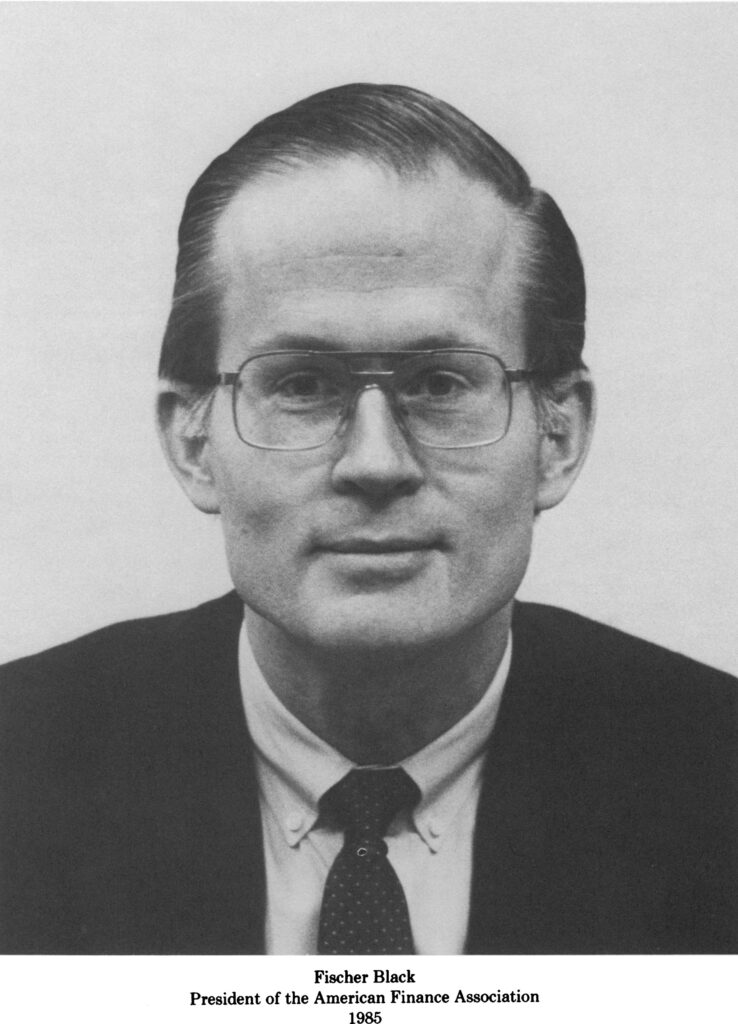I recently came across an article about my dad that I had never read before, from The Journal of Finance. I especially love the final sentence, about having the intellectual courage to challenge the status quo.
The thing I liked best about the way my father’s mind worked was his lack of attachment. He practiced a very high degree of intellectual freedom and did not feel tethered to anything—not to his own previous theories, not to assumptions that are broadly taken by everyone else as a priori. In a way, he had the mind of a child. If anything, he seemed to take a certain glee in finding faults in his own work; I recall him being oddly excited to discuss a new paper he’d titled “The Holes in Black-Scholes.”
THE JOURNAL OF FINANCE . VOL. L, NO. 5 . DECEMBER 1995
WE HAVE LOST A MAJESTIC colleague and a dear friend in the untimely death of Fischer Black on August 30, 1995. He was only 57 years old. He loved the mixing of basic and applied research. He was often heard to say that the best pure research grows from efforts to solve applied problems-and that the best applied research to solve problems grows from intellectual curiosity. He surely best exemplified this dictum, both in applying the principles of financial economics to produce first-rate practice and in modeling practice to generate first-rate theory. Some academics have successfully moved to practice and even a few practitioners have successfully become academics. But Fischer was truly the rare case. He was facile at moving back and forth between the academic and business communities, often succeeding in both settings simultaneously. Few have matched in even one dimension Fischer’s extraordinary curiosity, originality, dedication to scholarship, and intellectual courage to challenge the status quo of economic thought.
Here’s the rest: https://www.researchgate.net/publication/286068592_Fischer_Black
